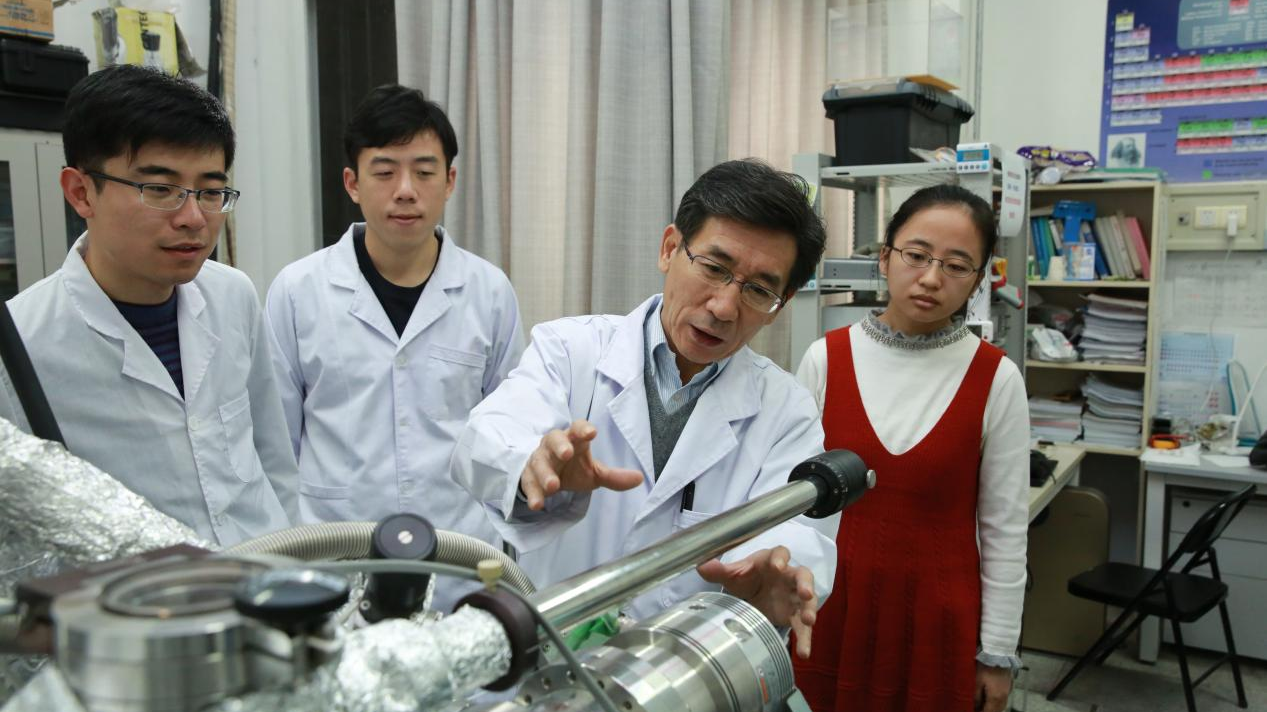Buckley Prize awarded to Chinese physicist for first time


Chinese physicist Xue Qikun (2nd R) with his students in the lab. /Tsinghua University
Chinese physicist Xue Qikun (2nd R) with his students in the lab. /Tsinghua University
Chinese physicist Xue Qikun was awarded the 2024 Oliver E. Buckley Prize from the American Physical Society (APS) on Tuesday. This marks the first time a Chinese scientist has won the top prize in condensed matter physics since the award was founded in 1953.
Xue, together with Harvard University professor Ashvin Vishwanath, earned the prize “for groundbreaking theoretical and experimental studies on the collective electronic properties of materials that reflect topological aspects of their band structure,” according to the APS.
The Oliver E. Buckley Prize is recognized as the highest award in condensed matter physics, aiming to honor scientists who have made outstanding contributions in the field, according to the Tsinghua University (TU).
As a member of the Chinese Academy of Sciences, professor at TU and president of the Southern University of Science and Technology, Xue’s primary achievements include research on topological insulators and innovative breakthroughs of experimentally discovering the quantum anomalous Hall effect (QAHE) in a magnetic topological insulator.
Since 2009, Xue’s research team has made a series of significant advancements in the experimental research of topological insulators. The QAHE is one of the major scientific goals in this field.
By the end of 2012, his team discovered the effect for the first time in the world. Relevant study was published in the journal Science in March 2013.
According to the TU, the study is an important physical effect that Chinese scientists independently observed in experiments and is a significant scientific discovery of fundamental research worldwide.

